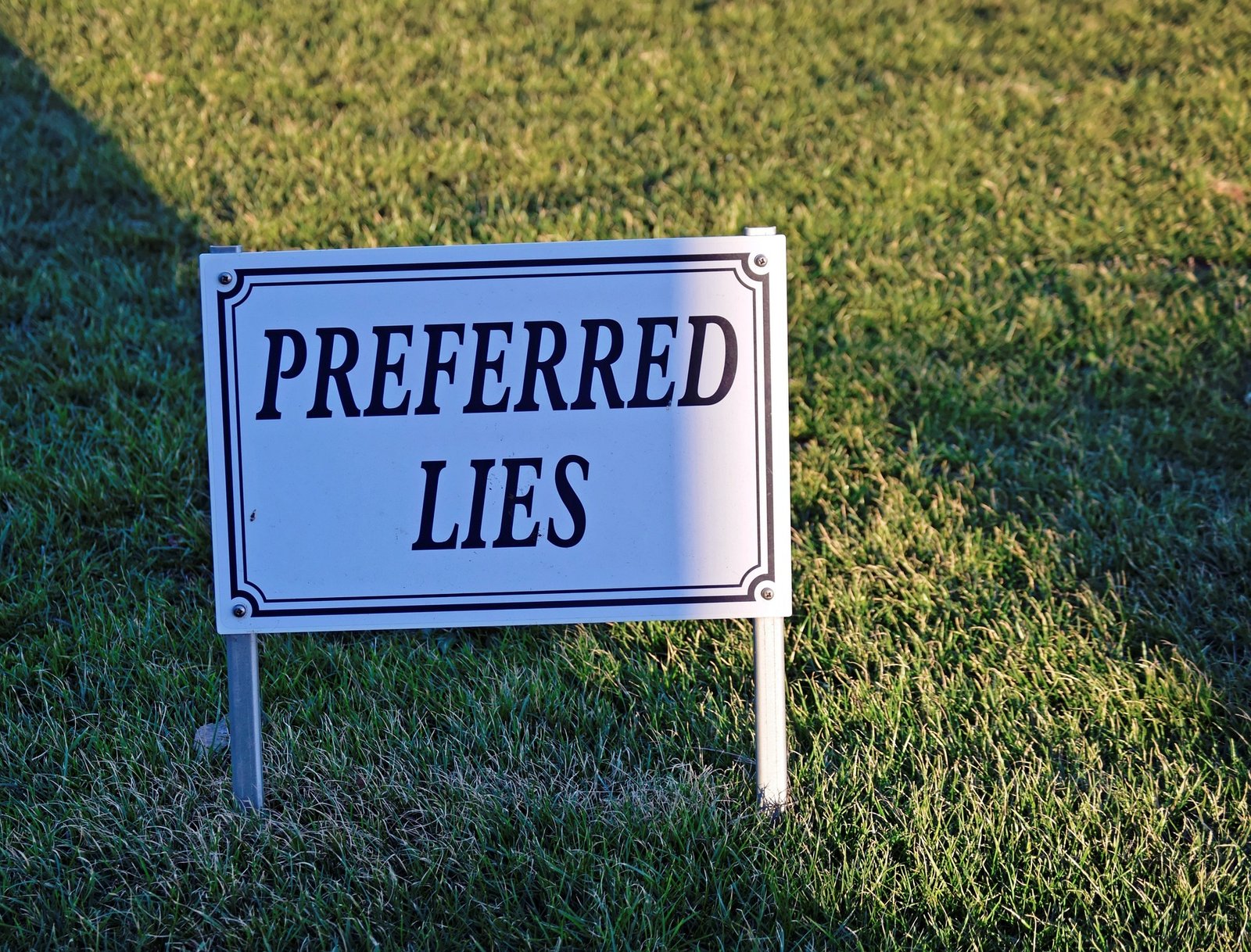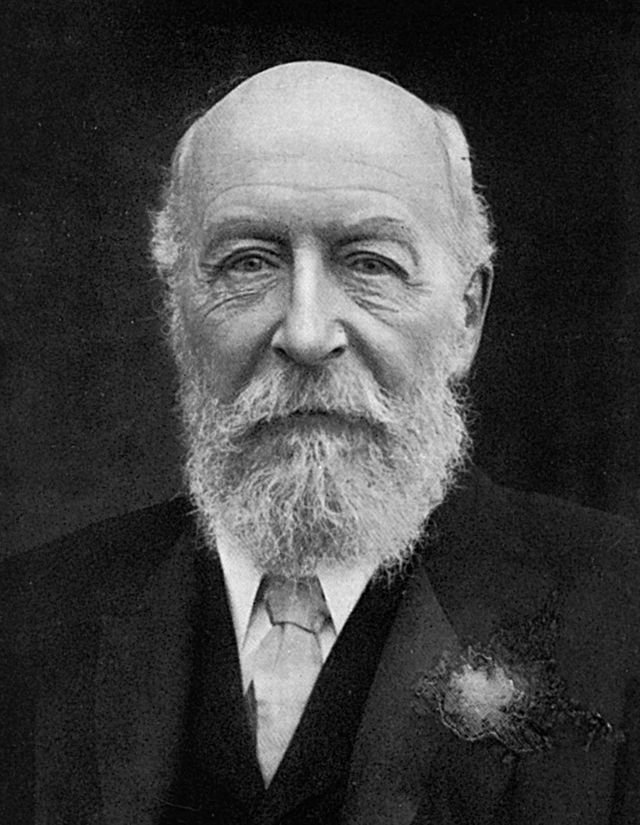18th November 2022
If you had the resources to be a philanthropist, how would you go about it? We explore some of the key choices and issues.
A lot of the time, working in philanthropy is quite weird. Most of us who do it don’t have large amounts of our own money to give (I know I certainly don’t), but at the same time we almost certainly have opinions about how other people’s philanthropic resources should be used (I know I certainly do).

Some of us might be trying to get money out of wealthy people through fundraising, whilst others may be working for or advising individuals and organisations that have significant philanthropic resources to deploy. Some, meanwhile, might just settle for putting their thoughts into articles, books and podcasts in the hope that someone who is in a position to give big might be listening… (Yes, that is my strategy, and I stand by it).
In any case, it reminds me of the classic Peanuts comic strip in which Linus Van Pelt declares to Charlie Brown: “When I get big, I want to be a great philanthropist!” Charlie Brown replies that “you have to have a lot of money to be a philanthropist”, to which – after a pause for thought – Linus responds: “I want to be a great philanthropist with someone else’s money!”
Which feels like a pretty apt summary of what those of us who work as philanthropoids are doing most of the time. (And I have to say that I feel even more culpable than most here. I spend most of my time researching and opining about philanthropy, rather than actually rolling up my sleeves and helping to deploy philanthropic resources to where they are needed, so I’m hanging out at some sort of weird meta level).

Which is why, every few weeks or so, I like to play a little game with myself called “You’re the Philanthropist Now!” © The premise is that you have somehow come into a vast sum of wealth and are contemplating giving some or all of it away, so you have to decide how to do that in a way that you are comfortable with (and, for an added bonus, which you think will be as immune from external criticism as possible). The key thing is to avoid as far as possible theoretical generalisations and “different approaches are all valid” equivocations (which I will admit I am very guilty of a lot of the time, because I just love nuance…). Instead, you should try to think through what you would actually do when push comes to shove. Which in my opinion is surprisingly difficult to do, but which I also find a very useful way of challenging myself (especially when it comes to some of my more sweeping generalisations about philanthropy).
So, who fancies a game right now? Alright then, let’s play!
Question one:
How have I got rich?
Historically, it has been thought by many that philanthropy can exist in isolation from wealth creation, so it is possible to ‘make money with the right hand’, and ‘give it away with the left’. Of course, not everyone has agreed with this: as the historian David Owen notes, for the 19th century Quaker philanthropist George Cadbury, “making money and giving it away formed a single pattern and making it could be as constructive socially as giving it away. No amount of philanthropic giving could take the curse off a fortune that had been accumulated carelessly or without regard for the welfare of the workpeople who had labored for it”. And from what I can tell, a growing number of people these days tend to agree with Cadbury on this; including many among the new breed of ‘next generation’ philanthropists, who are keen to apply their aims and values to all their activities and not just to their giving.

For the purposes of our game, let’s assume that my money has come from a source that is sufficiently ethically sound that questions of legitimacy are not an issue. (So probably not founding a cryptocurrency exchange then, eh? Just a little bit of November 2022 topical humour for you, there…). Perhaps, in an unlikely turn of events, writing surprisingly long blogs about philanthropy has become a highly lucrative money-spinner. Or maybe I have won the lottery. Or, if you have ethical objections to that as a form of gambling, then just assume that I have made loads of money through running a B Corp which has developed a revolutionary new renewable technology, or something similarly laudable. The important point is to decide for yourself what (if anything) would count as a morally unimpeachable way of making loads of money.
Right- now we’re agreed that my money isn’t disastrously tainted, it’s time for question 2.
Have I paid all my taxes?
Ooh, was that some uncomfortable shuffling at the back there? I wouldn’t be surprised, as the whole issue of the relationship between philanthropy and taxation tends to get a bit thorny. However, I think it is important to deal with this one up front, and my take on it is actually pretty straightforward: you should pay all the taxes you owe before you even get to thinking about philanthropy.

Taxation is a duty of justice, imposed on all of us as part of our membership of society. We need to discharge that duty before deciding whether there is a further duty on us to give (if we believe that philanthropy is at least partly a matter of justice too), or whether we just want to give voluntarily (if we believe philanthropy is supererogatory i.e., something that goes above and beyond duty). (NB: if you want a more detailed discussion of philanthropy, justice and duty, check out this episode of the Philanthropisms podcast on “The Philosophy of Philanthropy”).
Philanthropic giving is therefore not an alternative to taxation (as both perform different functions) in our society, so giving money away should never be used as a justification for not paying tax. There is, of course, a separate question about whether governments should choose to offer dedicated tax breaks for philanthropic donations and what the justification for that might be. However, just for once, I am not going to get into that. Suffice it to say that I think taking advantage of legitimate tax incentives for charitable giving is different to simply deciding not to pay taxes in the first place and then justifying that on the basis that you give money away. And it is the latter that I am keen to make crystal clear I don’t think is OK.
Should I be paying more tax?
Of course, just because I, as a newly-minted gazillionaire, have paid all the tax that I owe, that doesn’t necessarily mean that we’re done with this question. What if I also happen to think that the tax I owe isn’t enough and that taxes on wealth should be higher? (Which I broadly do, given the state of the UK economy and levels of inequality here and elsewhere). In that case, what should I do? Somehow pay more tax? I think such a thing is technically possible, and that people do sometimes choose to make voluntary overpayments to the Exchequer.
However, I’m not sure that is how I would choose to do things personally. I would probably be more minded to direct part of my philanthropy towards issues of justice (of the same sort that would be addressed through taxation and redistribution), and also to put some resources towards campaigning for higher taxes on wealth (as the members of groups like Patriotic Millionaires and Millionaires for Humanity have). Of course, I’m aware that it is easy for me to make such bold claims about what I would do with my money when it is all entirely imaginary. However, the guiding rule of this game is to question whether that is what I would actually do, and I like to think that I would stick to my principles on this.
How much of my money am I going to give away?
OK, so I’ve paid my taxes and I’m also campaigning for higher taxes too. Well done me. Let’s turn now to giving. My first question is: how much should I give?
There is clearly no fixed answer to this. Some religions do set out expectations of levels of giving as a percentage of wealth or income (often at around 10%), and likewise initiatives like the Giving Pledge aim to get very wealthy people to commit to giving at set proportion of their wealth away during their lifetimes (at least 50% in that specific case). But there have also been plenty of people who have gone further, giving away the vast majority (or even all) of their wealth, so we shouldn’t necessarily set the bar too low.
I might actually have something of an advantage here, in that I am not accustomed to being rich. Hence, assuming that the hypothetical wealth in this game comes to me relatively quickly and I don’t give myself time to get used to it, I should be able to give a pretty hefty proportion of the money away without even noticing the effect (on an “easy come, easy go” basis). So I’m going to aim for 95%.

I realise things may be different for someone who has toiled hard over many years to make a fortune, or for someone who has inherited money and sees themselves at least in part as a steward rather than an owner, but hopefully that just affects the amount you feel comfortable giving away rather than acting as a barrier to giving away any at all.
Okay, next question.
Should I set up my own giving vehicle or just give all the money to existing nonprofits?
Hmm, this is a tricky one. If there are good organisations already working in the areas I’m interested in, should I just give the money to them? In a sense this is what Mackenzie Scott is doing with her philanthropy: giving out unrestricted grants to organisations to support their existing work, rather than establishing funding programmes or setting up new operational entities herself. However, although she is taking a somewhat innovative approach and hasn’t established a traditional foundation, she does have a structure for her giving and is distributing money in tranches to a wide range of organisations rather than giving it all away in one go to a handful of them, which is more the sort of scenario I am envisaging for my thought experiment. (FYI for more analysis of Scott’s approach to giving check out this earlier article).
If I’m honest with myself, I don’t think I would just give all the money away. Is that because I’m inappropriately centring myself, and making my own my feelings a determining factor? Or because I’m being egotistical and assuming that I have something uniquely valuable to bring to the table? I’ll admit that the answer to both is probably “yes” to some extent.
Despite what the Effective Altruists preach, I’m not sure can entirely do away with my own perspective when it comes to giving. And nor do I think it would necessarily be a good thing even if I could: partly for the pragmatic reason that I think a lot of what motivates us as human beings to give risks getting lost if we refuse to allow ourselves any element of emotional connection to a cause; and partly for the theoretical reason that I have a lot of sympathy with the critiques of Bernard Williams and others, who argue that striving for an impersonal viewpoint in ethical or moral theories is misguided. (For more on this, check out my article “Why am I not an Effective Altruist?”)

Perhaps some of you reading feel differently and think that you would be happy just to give all the money away up front – either because you are a committed Effective Altruist and have calculated that this is the best way to do the most good, or because you just don’t want the hassle of taking an engaged approach to philanthropy over a longer period of time. If so, go in peace. For my part, however, I have spent the last 15 years or so thinking about philanthropy fairly non-stop, so the chances of me being entirely hands-off are pretty minimal – and I might as well be honest about that.
Should I set up a foundation, or something else?
Right then, I have decided that I am going to set up a new vehicle for my philanthropy, so what is it going to be? The obvious choice would be a foundation (or, in UK terms, a charitable trust – since there is actually no such entity as a “foundation” over here in legal terms). However, is this the right fit for me? And what are the alternatives?

One alternative would be to set up some sort of quasi-foundation under the auspices of an existing organisation. This is certainly a common practice in the US, where the market for Donor Advised Funds (DAFs) is huge. The UK doesn’t have quite the same landscape (in particular we don’t have big commercial DAF providers like Fidelity, Charles Schwab etc), but you can still set up a “managed trust” – either at a local level via a community foundation, or at a national level via a provider like Charities Aid Foundation (CAF) or Prism The Gift Fund.
For the purposes of our game, however, I am going to steer clear of DAFs: they do offer benefits in terms of reduced costs and administration, but they don’t offer the sort of funding flexibility I want (which we’ll come onto in a moment). I also share many of the concerns about the lack of transparency in DAFs and the way in which they have been used by some donors to get the benefits of charitable tax breaks without actually having to give money to anything that looks remotely like a charity, so I would be concerned that using one would open me up to criticism (and also a yawning pit of existential doubt…)
I might, however, set up a managed trust with my local community foundation – not as my main vehicle, but as an extra tool I could use to do some giving in my local area (which, as I’ll outline in a moment, I would probably want to do in addition to focussing on national/global issues). I might make this a fund that local civil society organisations could apply to; or I might just hand the decision-making power over to the community foundation, on the grounds that they almost certainly have a better handle on local needs and more knowledge about organisations doing good work in the area than I would.
The other question is whether I want to set up a traditional philanthropic foundation or use some sort of non-traditional (and non-charitable) structure like a Limited Liability Partnership (LLP)? These are definitely the fashion du jour among elite philanthropists in the US these days (especially among those from a tech background), who often cite their greater flexibility when it comes to funding political advocacy or commercial ventures as the primary appeal of the LLP model. (And presumably the significantly reduced transparency requirements are just an entirely incidental afterthought…?)
But for now, for the purposes of our game, I am not going to choose an LLP. I’m going to stick with a foundation because I believe there is value to having dedicated charitable structures and legal forms, based on the core idea of giving money away for the public good with no expectation of financial return, and I should put my money where my mouth is. If this becomes too limiting in future, because I want to fund more political activities for instance, then I reserve the right to change my mind. But if I did subsequently switch to using an LLP, I would aim to go well above the reporting requirements in order to ensure sufficient transparency (more on that in a moment).
What causes should I focus on?
I’ve decided on a foundation – now I need to decide which causes I’m going to focus on. (Some might suggest at this point that I should have started with this question – which is a fair point, but this is my game, so deal with it).
By far the biggest determinant in what people give to is direct connection to a cause, often because of a personal experience of some kind. Which is why so many people give to medical research causes (because they or a friend/relative has been affected by a particular illness) or to causes involving children and young people (because many people end up having children and that tends to give you experience of some of the issues they face; and may perhaps make you more aware of causes affecting other children less fortunate than your own too). In my case, I have had some relevant life experiences that might inform my choice of causes but probably none that would, by itself, define a central philanthropic purpose at this point. Among my primary interests are environmental causes (especially around biodiversity loss and habitat protection) and addressing local needs (Liverpool, where I live, is a great city but definitely has its problems when it comes to poverty, inequality, education etc, so there is plenty to do at a local level).
I have covered at some length elsewhere why I wouldn’t adopt a strict Effective Altruist approach, but that doesn’t mean I’m not willing to borrow liberally from what I think is good about EA, so I would definitely be using some of their thinking and tools to help me make my choices. In particular, the core EA tenet of trying to maximise the impact of your giving by focussing on underfunded areas always seemed to me to be eminently sensible. Hence I would definitely use data tools like 360 Giving or NPC’s Local Needs Databank to try to identify geographic areas or causes that receive less funding and prioritise those in my thinking. However, as I said already, I’m not really willing to adopt an entirely cause-neutral perspective, so my choices will be framed by a combination of what the data tells me and my prior interests.

I also want to make sure that I keep some space for more reactive giving that sits outside my own priority areas, so that I can respond to disaster appeals or fundraising requests. I know that many philanthropists do this, and I think it is an important part of recognising the need to maintain a habit of giving. I also think that balancing philanthropy with more straightforward charitable giving is a good way of preventing high-falutin’ philanthropic ambitions from getting too far removed from the basic human connection that should remain at the core of giving. (A charge that has long been levelled at philanthropists, as detailed in this article on the history of satirising philanthropy).
What about cross-cutting issues?
It’s pretty clear to me that there are some issues which are so urgent and cross-cutting that even if, for whatever reason, I don’t choose to make them “causes” that I focus my philanthropy on, I still need to take them into account. I would include the climate crisis, racial justice, inequality and the renewal of democracy among these. And they need to inform not just my grantmaking but my whole approach: from investments to operations to HR and everything in between. What this looks like in practice will depend on some of the other decisions I have yet to make (and it will almost certainly evolve over time too), but from the outset I am going to make these cross-cutting issues lenses that I apply to everything I do. (And I’m going to keep that under review, in case it becomes clear that there are other lenses we should be applying as well).

What kinds of work/organisations should I fund?
In addition to deciding which cause areas I want to focus on, should I specify any preferences for the types of work or organisations that I fund within those areas? One choice facing all philanthropists, for instance, is whether to fund “upstream”, at the level of policy, research and knowledge production; or to fund “downstream”, at the level of providing services which directly address needs. Some frame this as a choice between addressing the symptoms of problems and addressing their underlying causes, which may not be entirely accurate, but does capture something of what is at stake.
In reality, of course, many donors balance both approaches; because focussing entirely on dealing with symptoms seems ineffective over the long term, whilst focussing solely on advocacy or policy change when there are many acute needs to be addressed right now feels a bit cold and distant. And I think I would probably follow that model: combining upstream and downstream in the areas I choose to fund in.

Linked to that is the question of whether there are particular types of organisations I would want to fund. Would I, for instance, fund only formal organisations (registered charities, 501(c)(3)s etc)? Or would I fund informal groups and networks, of the kind that seem to be playing an increasingly important role in efforts to drive social change? Would I also fund social enterprises that combine business models with social purpose? Or even fully commercial organisations that I believe produce social good? The answers to these questions also need to inform some sort of feedback loop to our previous question about giving vehicles, as the choice of vehicle will determine to some extent what it is possible to fund (because there might be limits on how much private benefit is allowed, or what sort of political activities are acceptable to engage in).
For the purpose of the game, my answer for now is that I would fund a mixture of formal and informal organisations. I would probably have an emphasis on those for whom grant funding is the only feasible option, but if there are organisations that manage to combine compelling social value with some sort of financial return then I wouldn’t rule those out either. (Though I might look to invest in those using my endowment rather than grant funding them, as outlined below).
How should I find organisations and fund them?
Right, I’ve decided what kinds of organisations I want to fund, how do I go about finding some actual examples? One way would be to invite grant applications, which many funders do, although that has implications in terms of administration (both for me and for the organisations applying). I’m not averse to allowing grant applications (as in some ways it is more democratic), but I would want to make sure that if I do I make the process as straightforward and worthwhile as possible for applicants e.g. by being clear about any funding criteria, keeping the application short and simple, allowing verbal applications (to avoid prioritising the written word, which can result in bias), giving feedback to all applicants etc. I know many funders will at this point be thinking “well, yes, that’s all lovely in theory but in practice it’s much more difficult…”, but luckily for me I don’t have to do it in practice at this point so I can just crack on with the game.

As well as offering a grant application process, I might also look to harness technology to democratise the process of finding potential grantees even further. Using Natural Language Processing it may be possible to harness large volumes of data from media and social media to identify potentially interesting organisations and groups to fund. (Thus flipping the traditional grantmaking model on its head to some extent, and putting the onus on me as the funder to go out and find organisations to fund rather than waiting for them to come to me- an idea I have explored further in various places including this essay for NPC and this article for The Catalyst).
When I have identified organisations or groups I want to support, how am I going to fund them? Assuming that grants are my main tool, I’ll aim for them to have a few key characteristics as a default: they will be unrestricted (i.e. for recipients to spend as they choose), they will be long term (at least 5 years) and they will not come with onerous measurement or reporting requirements (as I will focus my efforts on building trust-based relationships with grantee orgs).
My inevitable success and wild popularity will bring challenges of their own, of course. In particular the question of how long I plan to fund each organisation. Do I have an exit in mind in each case, or am I just planning – once I have started supporting an organisation – to fund them forever? This is a tricky question. I would want to fund for long enough that grantees have the time to do something meaningful with the resources, and I certainly wouldn’t want to be seen as capricious or accused of ending funding inappropriately. However, I also wouldn’t want organisations to become entirely dependent on me (not least because I am not planning on being around forever: see below), so I need some idea of what it would mean for me to stop funding an organisation and how that transition could be made as smooth as possible. That might mean ensuring that they are able to find other foundation grants in future, or to earn income through trading, or to get money from government. But whatever the envisaged end point is, this needs to be factored into my funding from the outset to ensure it doesn’t come as a nasty surprise.
How do I want to measure success?
I mentioned already that I would want to avoid placing an unreasonable burden on grantees when it comes to measurement or reporting. However, that doesn’t necessarily mean I don’t want to do any measurement at all. As many have argued (e.g. NPC CEO Dan Corry in this conversation for the Philanthropisms podcast) that would feel like throwing the baby out with the bathwater, because surely we want to have some ability to assess whether or not what we are doing is having an impact or producing social good? Hence balancing a trust-based approach with some ability to make measurements of how well things are going would be sensible.

The main criticism when it comes to measurement is that too often it seems to be decided by the funder and based solely on their needs and priorities. It then becomes something that is imposed upon grantees; and may just create more work for them without adding any real value to what they do. (For more on the measurement debate, read this short Why Philanthropy Matters guide). But this needn’t be the case. What if, instead, measures of success were co-designed with grantees: tailored to their particular circumstances and designed to be useful not just to the funder but to the grantee organisation themselves (who surely also want to know that what they are doing is effective)? That is certainly what I would aim to do. (Which again, I’m sure is more difficult in practice than it sounds, but luckily in this game I can remain idealistic).
How much risk am I willing to take?
A criticism sometimes levelled at foundations, and at philanthropy in general, is that there is too much risk aversion. And this is a real problem, given that one of the most oft-cited arguments in favour of the legitimacy of big-money, institutional philanthropy is that it plays a vital role in society by being able to take risks that the public and private sector cannot, and thereby drives innovation and social progress. If, in reality, a lot of philanthropy is merely playing it safe then that legitimacy may be called into question.

For my part I’m going to choose to live by the words of the Director of the Carnegie UK Trust, as quoted in the 1952 Nathan Committee Report:
“It is the business of trusts to live dangerously”
So, I want to ensure that I keep my tolerance of risk pretty high at all times. We’re not, of course, talking here about financial risk: one would assume the financial risk is 100%, given that I am making grants with no expectation of return. What we are more likely talking about is the risk that things I support don’t deliver intended outcomes, or the reputational risk that might come in giving no-strings-attached funding to groups who then decide to use it on things that some deem to be controversial. But as long as the risk is only to my money or my reputation, and not to the people and communities I am trying to support, then bring it on.
Should my foundation have a limited lifespan?
Right, I’m making all kinds of awesome, empowering, appropriately risky grants. How long do I want to keep doing that for? The traditional default answer would have been “maybe forever…?” since many endowed foundations were set up in perpetuity, but there are good reasons to challenge this assumption. For one thing, as critics have pointed out for many hundreds of years, allowing foundations to exist in perpetuity brings with it the risk that the founder’s wishes are set in stone and that the “dead hand of the donor” is therefore able to reach forward and affect the lives of future generations in a way that violates principles of intergenerational justice. More pragmatically, many of the issues facing the world right now are sufficiently urgent that it feels right to ask whether we should be aiming to allocate any philanthropic resources more quickly, rather than deliberately holding on to them and dishing them out in small portions over long time periods.
 There is a valid case to be made that the ability to take a longer term view is actually one of philanthropy’s key strengths, and that therefore we should perhaps not be too hasty in assuming we need to shift all the way from a default of perpetuity to one of spending money as fast as possible (as we explored in this WPM guide). However, I think the arguments in favour of questioning perpetuity and looking instead to give foundations a limited lifespan are pretty compelling. This is particularly true when it comes to many of the environmental/climate-focussed issues that I would want to work on: it makes little sense to hold onto assets now just so that I can sit around on a scorched planet at some point the future, counting the scale of my endowment and planning what to spend 5% of it on that year. For that reason alone, I am going to set myself a 20-year limit to spend down all of the assets of my foundation. Tick tock.
There is a valid case to be made that the ability to take a longer term view is actually one of philanthropy’s key strengths, and that therefore we should perhaps not be too hasty in assuming we need to shift all the way from a default of perpetuity to one of spending money as fast as possible (as we explored in this WPM guide). However, I think the arguments in favour of questioning perpetuity and looking instead to give foundations a limited lifespan are pretty compelling. This is particularly true when it comes to many of the environmental/climate-focussed issues that I would want to work on: it makes little sense to hold onto assets now just so that I can sit around on a scorched planet at some point the future, counting the scale of my endowment and planning what to spend 5% of it on that year. For that reason alone, I am going to set myself a 20-year limit to spend down all of the assets of my foundation. Tick tock.
Where and how should I invest any endowed assets?
We’ve established that my foundation is not going to be around forever. But it is going to be around for long enough that it makes sense to consider whether I need to invest my money, and if so, how? If it was merely a question of maximising the amount of money available for making grants, then I would probably just invest the money in standard stocks and shares using the best available ethical investment approach. However, there is an opportunity to go beyond this slightly passive approach, and instead to seek to be more active in using my endowment assets to invest in social enterprises and for-profit companies that produce a positive social good. This may mean a slightly lower financial return (although there is no reason that it should automatically mean that, especially if I am investing in renewables, clean tech etc), but even if it does I am willing to defend that to the hilt on the basis of taking a Mission Connected Investment approach. And if that means arguing with the regulator or needing to mount any sort of defence of my decision, let’s be having it. (Wow, it’s easy to talk tough in an imaginary scenario, isn’t it…?)
Who should be involved in the decision making about what to support?
I have already said that I want to shift power as well as financial resources to the organisations I am supporting, by giving them unrestricted grants and adopting longer funding cycles, but can I go further and democratise the process of choosing what to fund in the first place? That’s what the growing field of participatory grantmaking suggests doing: finding ways to bring the people and organisations that would traditionally have been seen as passive recipients of charity into active decision-making roles with the power to determine how philanthropic resources are allocated. And I would very much want to get on board this train from the outset.

In reality, of course, participation is not a binary choice – rather it is a spectrum along which there are all sorts of models that allow varying degrees of involvement; from having a grantee advisory board that merely informs your grantmaking decisions through to giving cash directly to recipients to do with as they wish. I would have it as a default to operate towards the more participatory end of this spectrum. However, I would also want to retain the ability to evaluate on a case-by-case basis what the best approach was, since there may be situations in which it is better for me as a funder to try to use my power rather than give it away (e.g. I may be better placed to engage in advocacy or influencing on behalf of smaller grassroots organisations than they would be able to themselves – although I would certainly still want to include them even if I did decide this was the best approach in a given instance).
There is also a question when it comes to adopting participatory methods about the balance between valuing lived experience and expertise. The former is hugely important, as there are many groups and communities that have historically been marginalised and shut out of decision-making within philanthropy and in wider society as a whole, so finding ways to empower them and bring them into to the room is vital. But I also firmly believe in the importance and value of expertise (unlike UK politician Michael Gove, I have definitely not “had enough of experts” yet), so I would want to include academics and practitioners who can bring that knowledge to the table too. The aim would be to embrace and value all these different kinds of knowledge equally, which I am aware is not always easy in practice. However, I like a challenge, and this seems worth doing, so for the purposes of the game I’m sticking to it.
Do I want to involve my kids?
One other question worth considering when it comes to decision-making is whether I, as a philanthropist, want to involve my kids in any way? I know that wealthy people who turn to philanthropy have long grappled with this question. Sometimes because they simply want to share their giving with their children in order to encourage them to share similar values, and sometimes because they are worried about the dangers of leaving large amounts of money to their children and thereby ruining them. Andrew Carnegie, for instance, was dead-set against bequeathing wealth to one’s offspring, arguing that “the thoughtful man must shortly say “I would as soon leave to my son a curse as the almighty dollar””; and as far back as 1612 Francis Bacon warned that: “a great state left to an heir is as a lure to all the birds of prey around him if he be not the better ‘stablished in years and judgement…”
I would imagine I would share these concerns about my own kids and be pretty loath to leave them vast sums of money that meant they never had to work. (Apart from anything else, if I had to spend a summer working in a portakabin outside Bridgend doing data entry for a company that organises the maintenance of telephone poles around Wales, then they should have similarly character-forming crappy experiences too…)
More positively, I know that my kids, like many others, care deeply about the world and to want to do things to help other people and the environment; so, if I now have the resources to do something meaningful about various issues they care about, it would seem pretty perverse not to involve them in some way. (Though I would also want to make sure that their involvement was done in such a way that it reflected the more democratised, participatory approach I have already outlined).
No, but do I REALLY want to involve my kids…?
Just a quick sense check. The idea of involving my kids is obvious great, but I have also met my kids – including a period of Covid lockdown home-schooling that we are all still trying to suppress in our memories – so I know that there is sometimes a gap between thinking “this would be a nice thing to do together as a family” and the reality. Would I really want to involve them in my philanthropy? This may be a slightly theoretical question for me at this point, as my kids are only 7 and 9, but it is worth asking. I think on balance I would want still to involve them, though I’m aware that I may also come to regret that decision.
How open and transparent do I want to be?
OK, on to our final couple of questions. How open and transparent do I want to be? My default answer is “as much as possible”. I’m aware that many people like to remain discreet or anonymous in their giving, either for religious or cultural reasons, or because they don’t want to become a target for fundraising, and I can respect that. However, I’m going to be giving at a pretty major scale and doing things that some people might consider controversial (such as supporting political advocacy on climate issues), so I think it is vital to be as open and transparent as possible in order to maintain my own legitimacy and avoid criticism.

I would also want to be open for a couple of other reasons. One is that I’m aware of the current paucity of data within the philanthropy world, so I would want to sign up to open data initiatives such as 360 Giving in order to ensure than any giving I do can create data points that others might be able to use to inform their own philanthropy and grantmaking. The other reason for being open is that I would want to use my public profile to encourage other wealthy people to give more, and to give in better ways. (I recognise that “better is a very subjective term, but I explored in detail what this might mean in this essay on “Better Giving” for the Law Family Commission on Civil Society).
I know that not every philanthropist necessarily feels comfortable with the idea of being a figurehead or making calls on others to give. However, I have basically made it my career to do that when I don’t have any money, so it would seem a bit cowardly not to keep doing it in the imaginary scenario where I become super-wealthy.
Do I want any recognition for my giving?
My final question is whether, in addition to the public profile I have welcomed above, I would want any sort of recognition for my giving? Obviously there is a rich tradition of giving thanks to wealthy donors in the form of statues, memorial plaques and naming rights for buildings etc, so would I want any of that? My immediate answer is not for its own sake, no. The ethics and dynamics of gratitude and recognition in philanthropy are complex (as we explored in a recent episode of the Philanthropisms podcast on “Philanthropy, Gratitude & Recognition”), and I would want to be very careful not to expect or demand thanks from the organisations I support, for fear of exacerbating any power asymmetries. However, realistically, if grantees wanted to say thank you of their own volition, then I would probably welcome a phone call or a letter from them, as I am only human after all!
If the question of naming rights came up, I would have to think carefully about it. My gut reaction would be to reject the offer outright, but there is an argument that if part of my aim is to encourage others to give by being visible, then putting my name on things is an effective means of achieving that. What I might do is try to split the difference, by accepting the naming opportunity but stipulating that the building or institution should be named after some obscure figure in the history of civil society rather than after me. (An idea proposed by Ben Soskis when I spoke to him on the Philanthropisms podcast, and which I like very much).
GAME OVER!
Well, there we have it. That brings to a close our round of “You’re the Philanthropist Now!” © – the game that is sure to be sweeping the nation before too long. As you can see, it is not always easy (or even possible) to answer all the questions definitively. And obviously these are only my personal answers; you might choose to go in a totally different direction. However, posing these questions to yourself and trying to be as honest as possible about what you would actually do if you had the means is, in my view, a really valuable way for anyone working in philanthropy to crystallise their thinking and bring to light some of the choices and deep-seated tensions within philanthropy.
So try it yourself, and if you have other questions you think should be added, do let me know!

